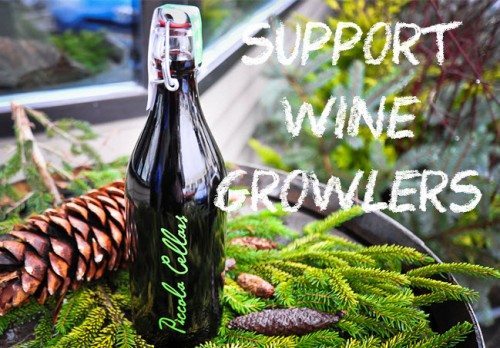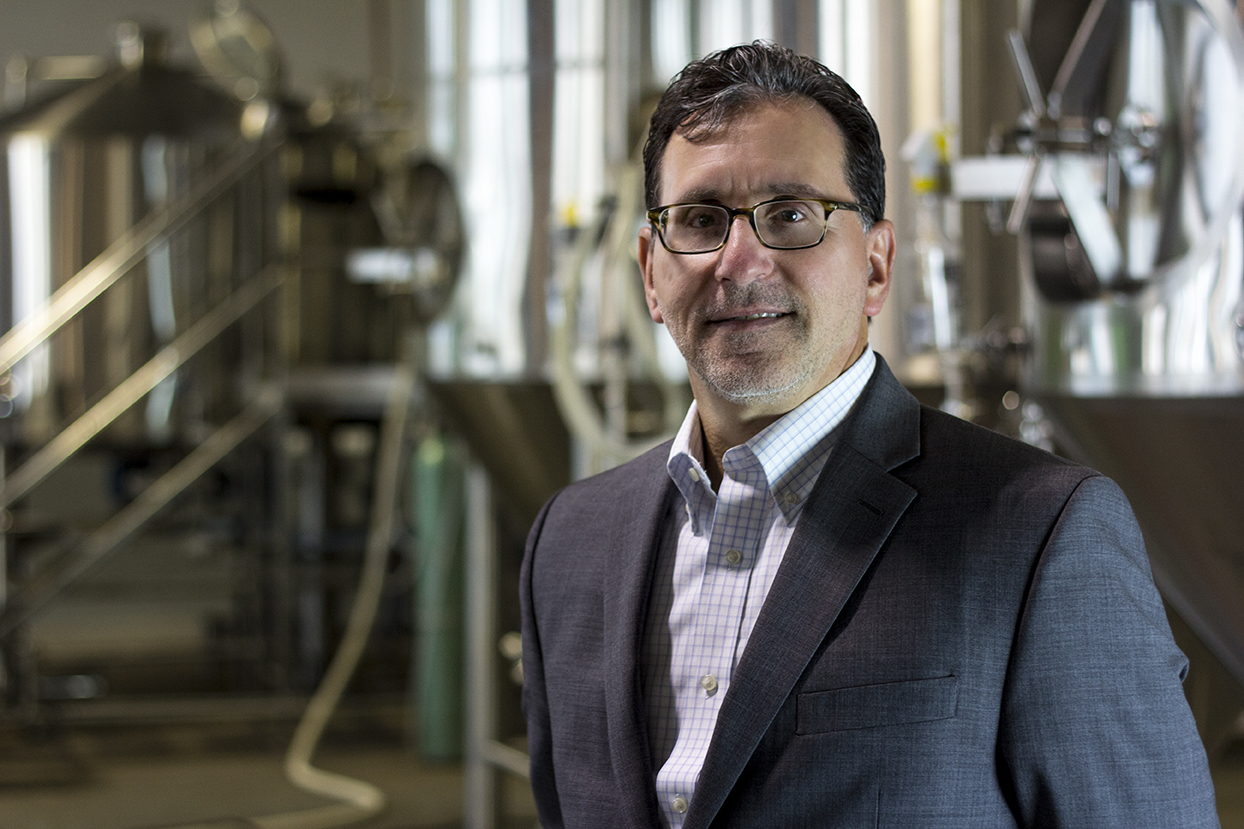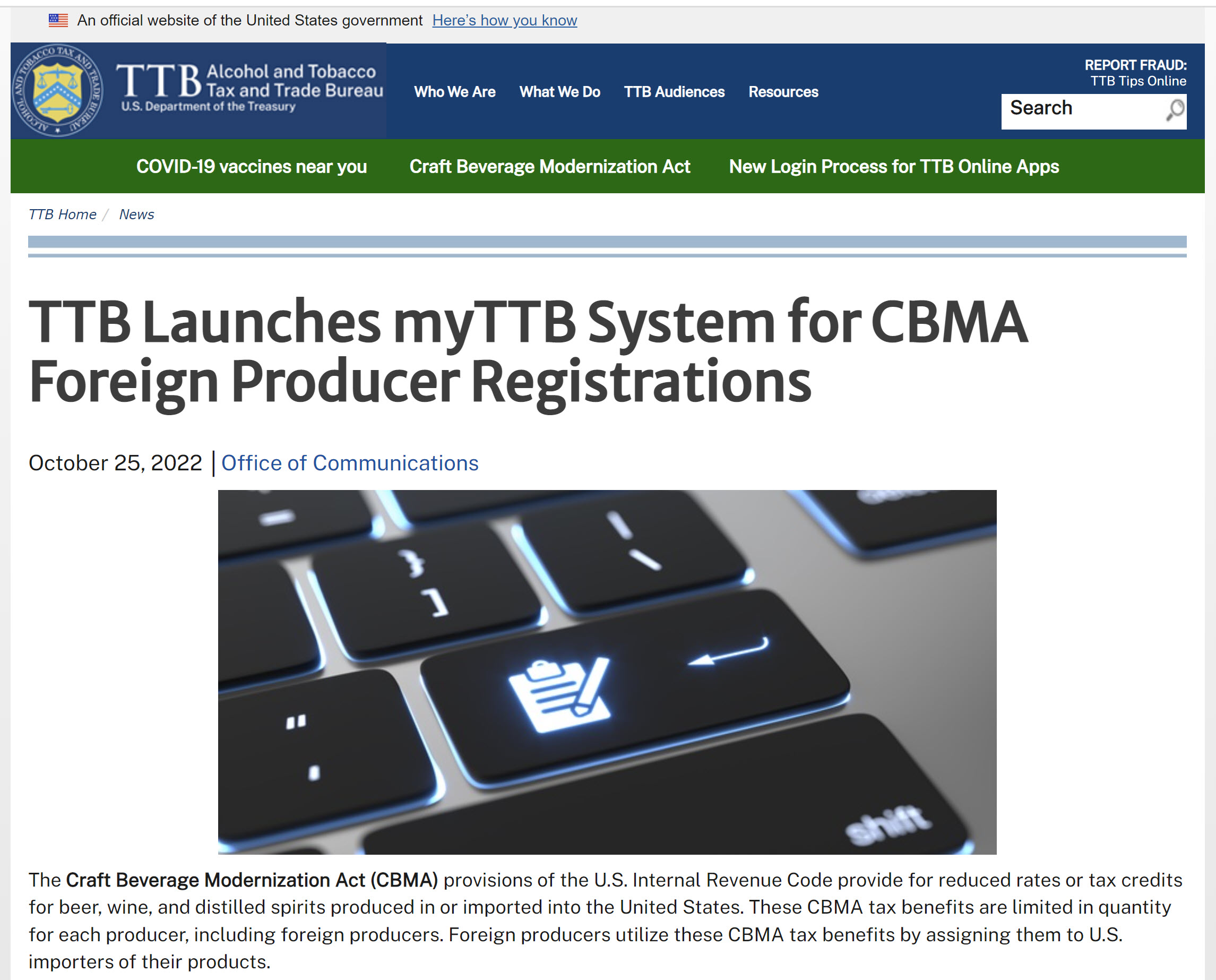Environmentally-conscious and corkscrew-phobic wine lovers alike will be thrilled to hear that TTB issued a ruling on March 11, 2014, allowing the filling of wine growlers by TTB-licensed tax-paid wine bottling houses (“TPWBH”). The ruling is in response to a new Washington state law allowing state-licensed wineries to sell wine off-site in kegs or “sanitary containers” (i.e., growlers) for off-premise consumption. Oregon passed a similar law in April 2013.
These laws are particularly helpful to wineries that operate both a production facility and a separate tasting room, allowing them to fill growlers for off-premise consumption at either location. The TTB ruling is somewhat less helpful to wine retailers, requiring that they go to the extra trouble of becoming TPWBH-licensed and comply with label and recordkeeping requirements.
Some wine retailers complain that it is unfair to not allow non-TPBH wine shops to sell growler fills to-go, since beer shops currently enjoy that privilege. TTB explains, the Internal Revenue Code (“IRC”) “has very specific requirements regarding the bottling of taxpaid wine. Section 5352 of the IRC requires any person who bottles, packages, or repackages taxpaid wine to first apply for and receive permission to operate as a taxpaid wine bottling house. There is no analogous provision with respect to beer.” The current TTB ruling interprets growler filling as bottling or packing and, therefore, restricted to TPWBH-licensed vendors.




Hi,
Glad to see the article. Unfortunately the second paragraph is not entirely accurate.
IRC 5352 applies to persons wishing to re-package taxpaid wine at other than a bonded wine facility. There has never been an issue with filling growlers at wineries provided they are filled in the bonded portion of the premise.
The Washington law proposed by Family Wineries of Washington State originally included filling of growlers in winery secondary (off winery premise) tasting rooms as well as everywhere that beer growlers can presently be filled (specialty beer and wine shops, restaurants, taverns and breweries). Two lobbying groups, the Washington Wine Institute and the California Wine Institute, threatened to oppose the bill unless its scope was limited to winery secondary tasting rooms only. The reduced scope bill is the version before the Governor.
Precisely the same federal regulations will apply to winery secondary tasting rooms as would apply to wine shops (as currently apply to wine shops in other states). That is, according to the re-affirmation of TTB’s 1973 industry circular, all these premises would require a taxpaid bottling house license under IRC 5352.
Thank you John for the astute observation. We have edited the post accordingly.
To all:
Here is an update on Oregon’s response to TTB’s ruling on wine growlers: http://www.ktvz.com/news/oregon-lawmakers-ask-feds-to-back-off-on-wine-growlers/25269164
Mr. Morgan, I believe you are referring to ATF Ruling 73-21, regarding the dispensing of wine by retail dealers from containers other than the original container. This is a ruling, not an industry circular, and as such carries more conclusive authority until updated or revised. http://www.ttb.gov/rulings/73-21.htm